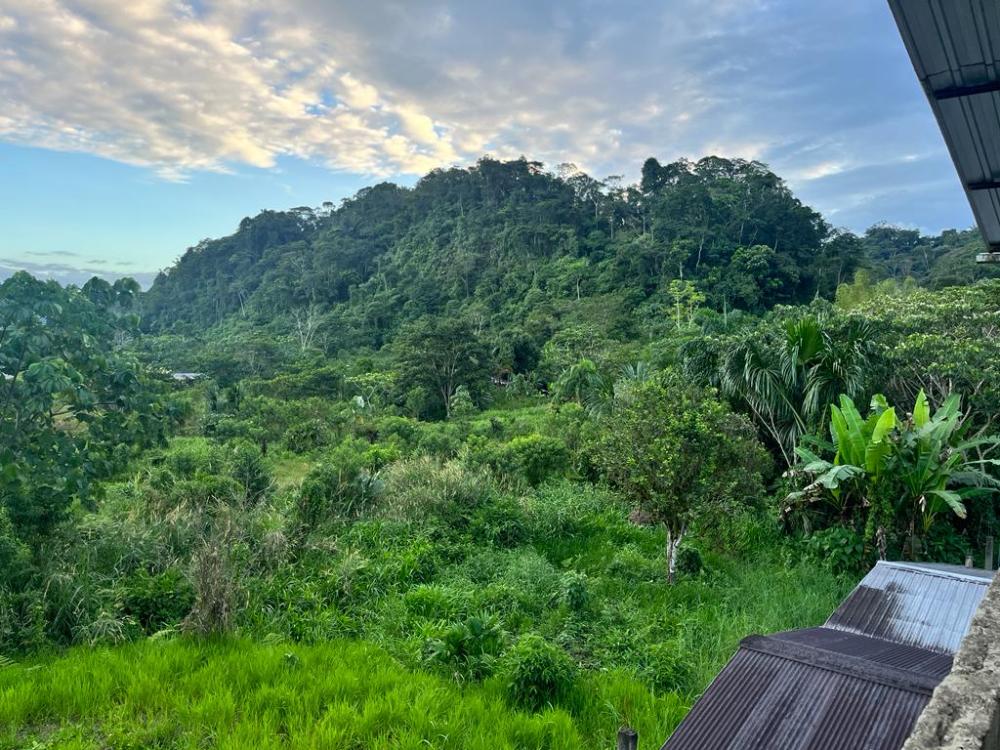About Manna Project International
Manna Project International (MPI), a US-based nonprofit organization operating health, education, and economic empowerment programs in Ecuador, is looking for Interns and Program Coordinators (PCs) to strengthen our on-site team in rural, Amazonian Ecuador to create sustainable grassroots programming that addresses the challenges and needs in the community. Interns will generally serve for 5-10 weeks and PCs for 3-6 months. Since 2004, Manna Project International has fostered communities of talented young leaders to become the next generation of social change agents by engaging in collaborative, on-the-ground service with international communities in need. MPI focuses on building cross-cultural relationships with local residents, partner organizations, community leaders while creating and implementing small, start-up community programs and develops our short-term and long-term volunteers and Program Directors through challenging field work, active skills building, and hands-on leadership opportunities over the course of their service. For more background on MPI, please visit our website,
www.mannaproject.org.
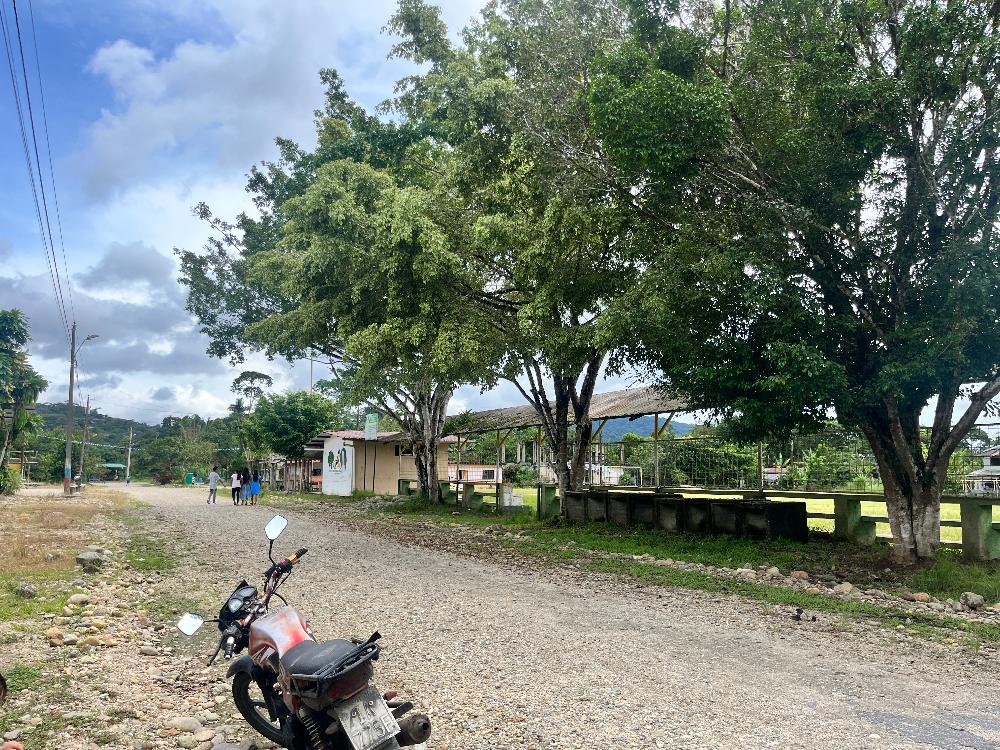
Overview of the Internship
This internship was created to support community-led initiatives whilst creating a once in a lifetime opportunity to get hands-on experience and mentoring in your future career track. During your internship, you will experience life and work alongside other young leaders from around the world as well as our large network of Kichwa community members all while being surrounded by one of the world's most amazing rainforests, complete with biodiversity, flora, fauna, and fantastic views. You will have the flexibility to support new programs and conduct personal research where the community's vision intersects with your own education, passions and interests. During the week, you will work in the local public health clinic, in the local school system, facilitating classes through the local government, and in the municipal offices of Tena. By the time you'll leave, you'll have created a community in Ecuador and internationally and have a much stronger sense of who you are and what drives you.
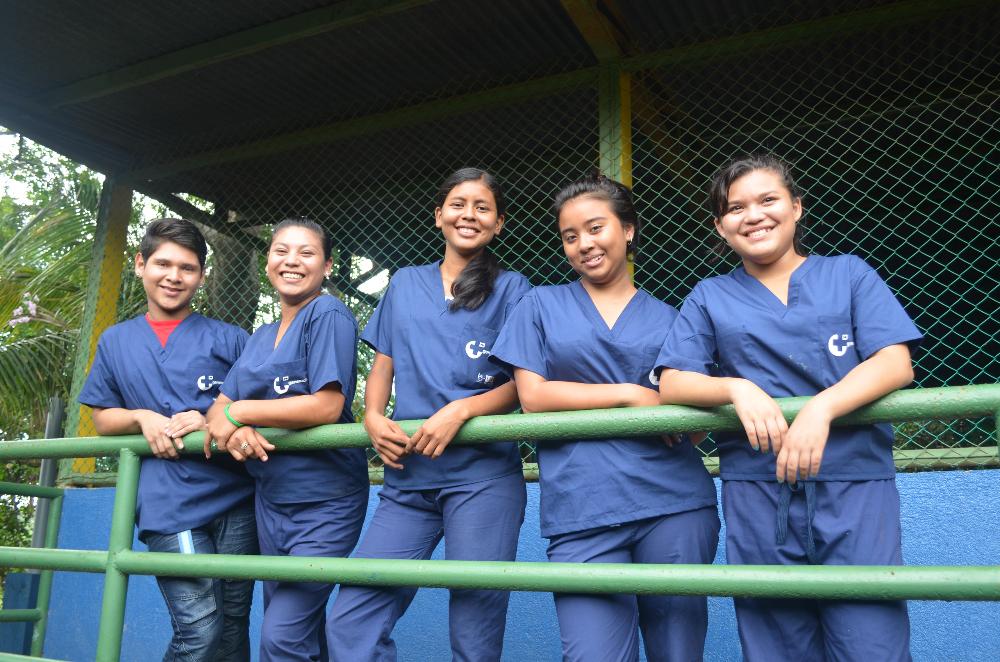 What a Public Health Internship Might Look
What a Public Health Internship Might Look
- Assisting with Workshop Organization: Help organize workshops on nutrition, chicken rearing, and public health topics for community members. This may involve coordinating schedules, preparing materials, and facilitating sessions.
- Supporting Chicken Rearing Program: Assist in the implementation of the chicken rearing program by joining in community programs to build chicken co-ops, support local leaders in the sharing of information, and any other ad hoc tasks.
- Shadowing Doctors: Accompany healthcare professionals on visits to rural, indigenous communities to observe healthcare practices and provide assistance where needed. This may involve taking notes, helping with administrative tasks, and interacting with community members.
- Updating Community-Facing Information: Assist in updating community-facing information and statistics related to nutrition, health, and chicken rearing. This could involve gathering data, creating informational materials, and distributing them to community members.
- Running Seminars and Workshops: Lead seminars and workshops on public health topics for community members. This may involve preparing presentations, conducting research, and facilitating discussions on relevant health issues.
Some of the Projects You Might Be Supporting
 Project: Health Clinic
Project: Health Clinic
We offer support directly to the public health clinic and supporting the administration staff as well as direct care staff where appropriate. We help to ensure that all documents for the community are up to date and accessible to a wide audience and supporting any ad hoc administrative and other tasks. We serve on the committee for the local health clinic as well and organize and run workshops in the public school system and independently in line with local health goals.
Objectives
The community of Shandia currently has no health education and the doctors at the local health clinic do not always have the time and resources to organize with the community, school, and themselves to be able to present age appropriate materials on key health topics to the school. MPI aims to work in collaboration with the health clinic and the school system to facilitate and organize workshops so that the community has access to high quality health knowledge.
Identified Needs of Community
The public health clinic and school system has invited us into their classrooms to try to raise rates of malnutrition, lower rates of teen pregnancy as well as water-borne diseases through quality education and dedication to teaching. Currently, up to 20% of the school can be out on any given day because of water borne illness that grows from lack of education on how to treat water.
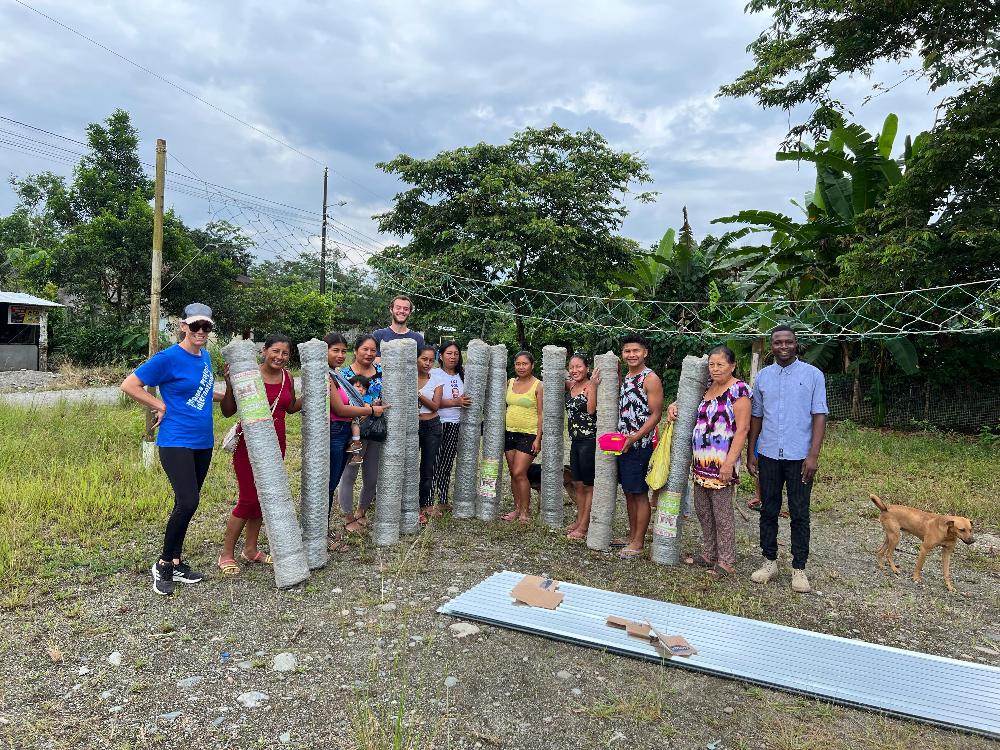 Project: Nutrition Program + Chicken Project
Project: Nutrition Program + Chicken Project
Under this program, Manna is working to provide chicken coop materials and 20-25 chicks for 31 families in the community of Ilayaku. In addition, participants receive workshops on nutrition as well as proper chicken care and commit to supporting the project through their labor in building the coops as well as through purchasing food for chicks. We see this program as a direct way to improve nutritional and economic outcomes in the communities we serve through providing a cheap, nutritious source of protein for families.
Objectives
The short-term objectives of the program are to provide information about nutrition and chicken care to participants, and to distribute coop materials and chicks to each family. Long-term, the goals of this program are to provide families with a sustainable food source, improve economic outcomes, and reduce rates of malnutrition in Ilayaku. We plan on evaluating these objectives through potential participant surveys, regular check-ins with families, and looking at the next round of health center data to determine any changes
Identified Needs of the Community
The program was suggested by Maribel, a leader in the community who works in the health center in Shandia. This program will mainly combat hunger and child malnutrition in the community. According to government statistics obtained from the health center, 36% of residents in the communities served by the health center in Shandia (including Iliyaku) experience chronic malnutrition.
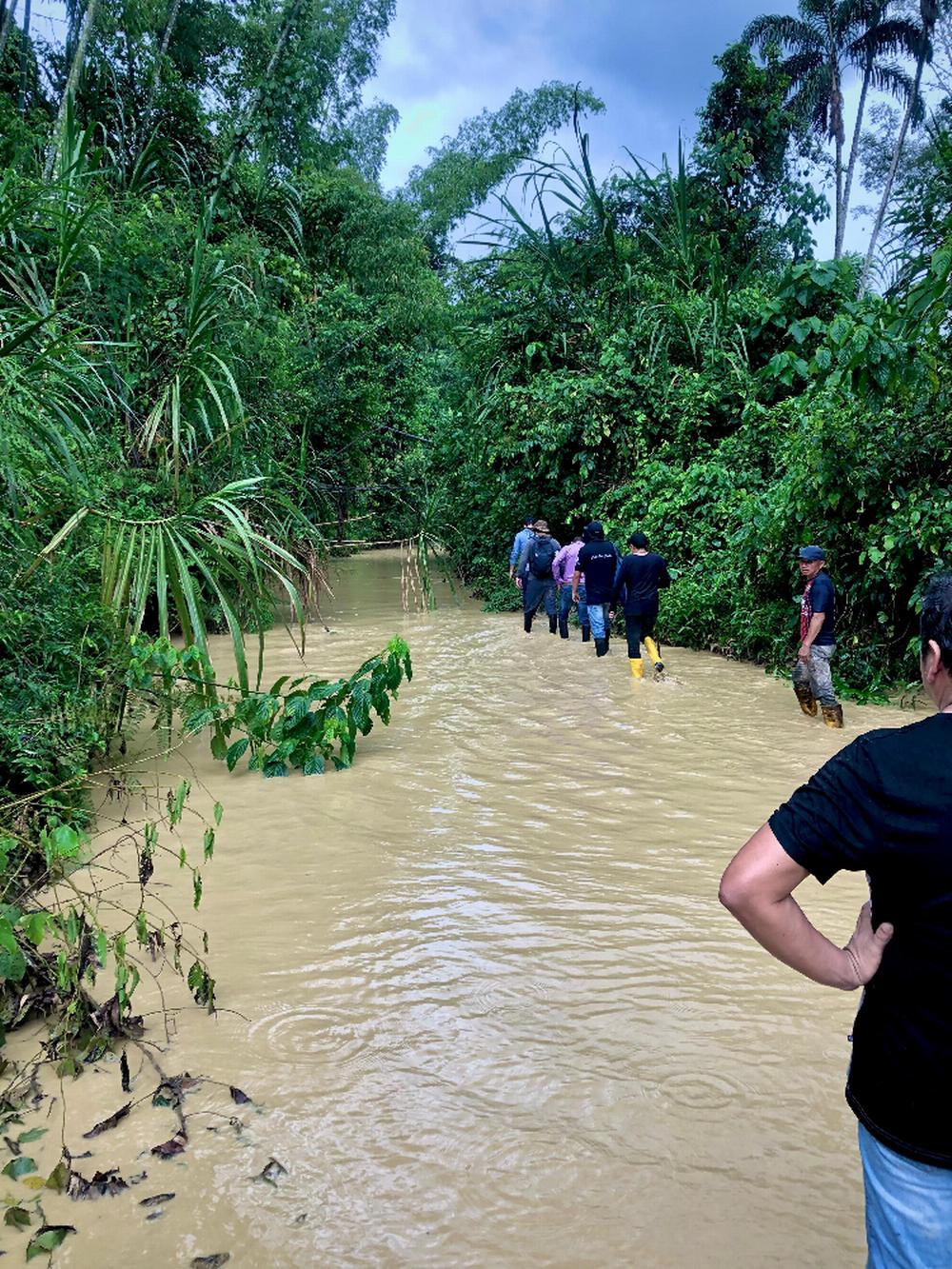 Project: WASH
Project: WASH
The program aims at providing safe and sufficient water to households in the 24 communities of the Parroquia de Talag. All communities are already served by water distribution systems, but the systems are old and don’t suffice for the public demand. In addition insufficient treatment is done and water quality minimum standards are not reached. The program aims at supporting the local government in the development of better water treatment systems, the development of adequately sized distribution systems, the legalization of each system’s water spring and the land surrounding it (protection of the watershed), the creation and legalization of administrative entities for each water system, the training of technicians responsible for the maintenance of the system and the training for water system users on topics such as water usage, sanitation, hygiene and environmental protection.
Objectives
Safe water is crucial for many aspects of life: health, sanitation, but also nutrition, economic development and potentially gender equality. By having access to a safe reliable source of water local community members would be facilitated in becoming social change agents, having the chance to better empower themselves and international communities they collaborate with. It’s crucial for humanity to be able to listen to more marginalized communities that rarely have the privilege to make their voices heard having their basic needs not met.
Identified Needs of the Community
The communities in the Parroquia de Talag lack access to clean water, which exposes people to preventable health risks and slows down the potential development of their communities.
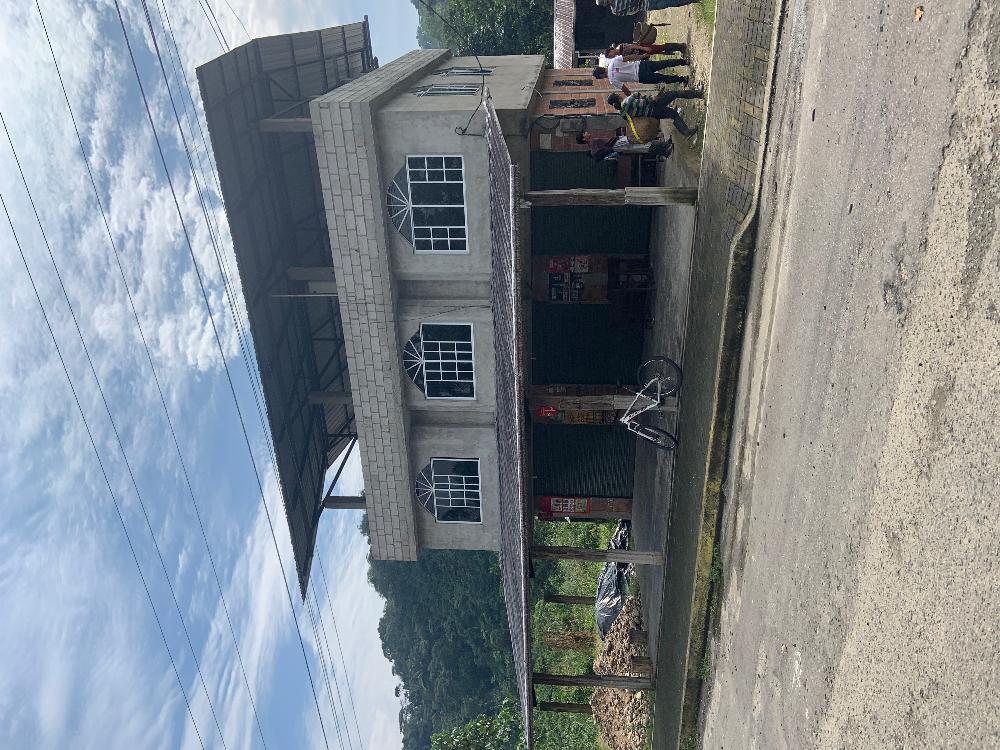 Housing + Food + Culture
Housing + Food + Culture
All interns will live in a shared house with other interns and fellows about a ten minute walk from Shandia. It has 4 generously sized bedrooms that generally house 2-3 interns at a time. There are also 2.5 bathrooms in the house, a rooftop terrace that offers panoramic views of the Amazon Rainforest, a fully equipped kitchen to cook, running water, electricity, and wifi. The house is situated above a local shop where interns are able to purchase any emergency items , like soap or shampoo packets, or about 30 minutes from the larger city of Tena where they will get groceries and can buy toiletries and supplies. Interns will have access to bicycles as well as the bus line to Tena and Shandia is located right in front of the house for easy access.
All interns have the option of doing a short-term homestay in a home in the community of Shandia as well for 1-2 weeks. These are generally organized by the intern with the help of Manna staff.
Most interns will prepare breakfast and lunch on their own from food available in the Manna house. Interns will generally cook dinner together. One day a week, the entire team will get together and eat at the ecolodge as an informal check-in and a way to enjoy the delicious, local Kichwa food. MPI provides every intern with a weekly food allowance. A portion of that allowance goes towards shared resources, like grains, vegetables, and beans. The rest is for the individual to use on personal food. Some people use it to buy food from local restaurants or food stands and others will use it on personal items from the grocery store like ice cream or cheese. We are able to accommodate all dietary recommendations, but recommend that interns mention to the Country Director as early as possible if they need any special accommodations (for example separate cookware) so that we can make sure that they are comfortable and healthy from day 1.
We are conveniently located in an area that is ripe for exploration. If you are interested in self exploration, we are about 3 km from Pimpilala Butterfly Sanctuary, La Laguna Azul, and many different trailheads for hikes in the Amazon. We have relationships with many local guides in Shandia who love to go out for hikes, invite interns to check out their chakras (family's farm fields), or who organize chocolate classes. We are also a 30 minute bus ride from Tena, where there is live music, cultural events, musical festivals, restaurants, and much more.
